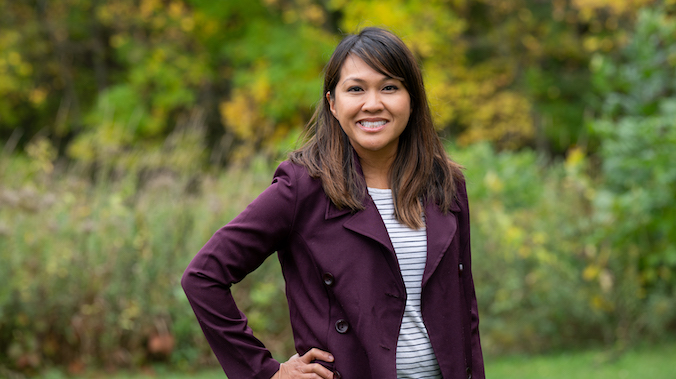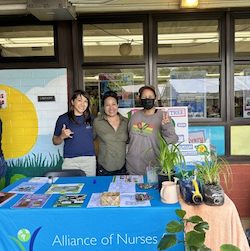
As climate challenges intensify, healthcare professionals including Melveen Camba are stepping up to protect communities in innovative ways. A graduate of the University of Hawaiʻi at Mānoa’s Online Advanced Population Health Nursing (APHN) Program, Camba has become an advocate in addressing the health impacts of climate change in Hawaiʻi.
“My education in UH Mānoa’s master’s in APHN program helped me see the big picture,” Camba said. “It gave me the confidence and skills to address complex health challenges, like climate change, with a population-focused lens.”
Preventing illness, injury
As an occupational health nurse, Camba leads initiatives to prevent illnesses and injuries, particularly among outdoor workers vulnerable to rising temperatures. Her work combines education, training, and advocacy to promote health and well-being for both workers and their families.

She has partnered with organizations such as Hoʻinana A Me Hoʻola and Maoli Farms to raise awareness about heat exhaustion and provide mental health support for workers. Camba also played a pivotal role in organizing the Island Roots, Global Change Climate Fair, an event that continues to advance community climate resilience.
Camba is an active member of the Hawaiʻi Climate Change and Health Working Group, which focuses on education, policy advocacy and sustainability. In addition, she visits schools to inspire the next generation to pursue careers in healthcare and environmental science.
Gary Glauberman, director of the APHN program in the School of Nursing and Dental Hygiene (SONDH), highlighted that Camba’s work exemplifies the program’s mission to foster innovative, community-centered leadership. The APHN program is designed to prepare nurses for leadership roles in population health, focusing on addressing complex public health challenges, and Camba’s career reflects these values.
“Her efforts are emblematic of the innovative approaches to health challenges that we encourage among our students,” said Gary Glauberman, associate professor and director of the online APHN program. “She’s showing what’s possible when nurses collaborate with communities to address climate and health issues.”
Applications being accepted
The Online APHN program is geared toward registered nurses who wish to practice in Hawaiʻi, the U.S. continent or in an international setting, offering online flexibility and community-based fieldwork. The program can be completed in one year as a full-time student or two years as a part-time student. Applications for the fall cohort are due by March 1.

